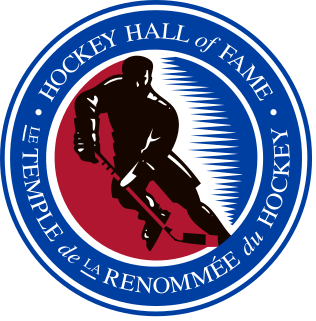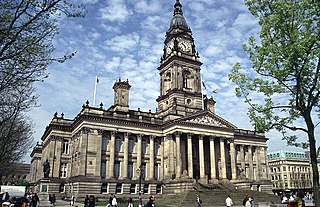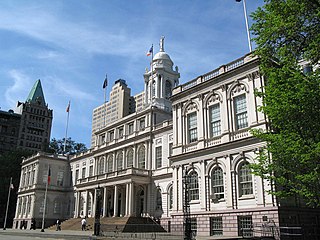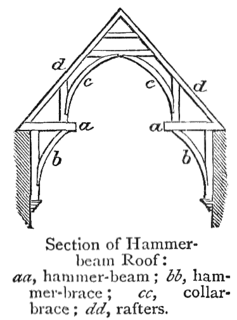
Trinity College is a constituent college of the University of Cambridge in England. The college was founded in 1546 by King Henry VIII. With around 600 undergraduates, 300 graduates, and over 180 fellows, it is the largest college in either of the Oxbridge universities by number of undergraduates. In terms of total student numbers, it is second only to Homerton College, Cambridge.

In architecture, a hall is a relatively large space enclosed by a roof and walls. In the Iron Age and early Middle Ages in northern Europe, a mead hall was where a lord and his retainers ate and also slept. Later in the Middle Ages, the great hall was the largest room in castles and large houses, and where the servants usually slept. As more complex house plans developed, the hall remained a large room for dancing and large feasts, often still with servants sleeping there. It was usually immediately inside the main door. In modern British houses, an entrance hall next to the front door remains an indispensable feature, even if it is essentially merely a corridor.

The Hockey Hall of Fame is a museum and hall of fame located in Toronto, Ontario, Canada. Dedicated to the history of ice hockey, it holds exhibits about players, teams, National Hockey League (NHL) records, memorabilia and NHL trophies, including the Stanley Cup. Founded in Kingston, Ontario, the Hockey Hall of Fame was established in 1943 under the leadership of James T. Sutherland. The first class of honoured members was inducted in 1945, before the Hall of Fame had a permanent location. It moved to Toronto in 1958 after the NHL withdrew its support for the International Hockey Hall of Fame in Kingston, Ontario, due to funding issues. Its first permanent building opened at Exhibition Place in 1961. The hall was relocated in 1993, and is now in Downtown Toronto, inside Brookfield Place, and a historic Bank of Montreal building. The Hockey Hall of Fame has hosted International Ice Hockey Federation (IIHF) exhibits and the IIHF Hall of Fame since 1998.

Jerry Lee Lewis is an American singer and pianist, often known by his nickname, The Killer. He has been described as "rock & roll's first great wild man and one of the most influential pianists of the twentieth century."

The Royal Albert Hall is a concert hall on the northern edge of South Kensington, London. One of the United Kingdom's most treasured and distinctive buildings, it is held in trust for the nation and managed by a registered charity. It can seat 5,272.

The Wiener Musikverein, commonly shortened to Musikverein, is a concert hall in the Innere Stadt borough of Vienna, Austria. It is the home of the Vienna Philharmonic orchestra.

Bolton is a large town in Greater Manchester in North West England, historically and traditionally a part of Lancashire. A former mill town, Bolton has been a production centre for textiles since Flemish weavers settled in the area in the 14th century, introducing a wool and cotton-weaving tradition. The urbanisation and development of the town largely coincided with the introduction of textile manufacture during the Industrial Revolution. Bolton was a 19th-century boomtown and, at its zenith in 1929, its 216 cotton mills and 26 bleaching and dyeing works made it one of the largest and most productive centres of cotton spinning in the world. The British cotton industry declined sharply after the First World War and, by the 1980s, cotton manufacture had virtually ceased in Bolton.

In local government, a city hall, town hall, civic centre, guildhall, or a municipal building, is the chief administrative building of a city, town, or other municipality. It usually houses the city or town council, its associated departments, and their employees. It also usually functions as the base of the mayor of a city, town, borough, county or shire. Other terms in non-English languages are Mairie (France) and Rathaus (Germany).

Eltham Palace is a large house at Eltham in southeast London, England, within the Royal Borough of Greenwich. The house consists of the medieval great hall of a former royal residence, to which an Art Deco extension was added in the 1930s. The hammerbeam roof of the great hall is the third-largest of its type in England, and the Art Deco interior of the house has been described as a "masterpiece of modern design". The house is owned by the Crown Estate and managed by English Heritage, which took over responsibility for the great hall in 1984 and the rest of the site in 1995.

The Great Hall of the People is a state building located at the western edge of Tiananmen Square in Beijing. It is used for legislative and ceremonial activities by the government of the People's Republic of China (PRC) and the ruling Communist Party of China. The People's Great Hall functions as the meeting place for the full sessions of the National People's Congress (NPC), the Chinese legislature, which occurs every year during March along with the national session of the Chinese People's Political Consultative Conference (CPPCC), a political advisory body. It is also the meeting place of the National Congress of the Communist Party of China, which, since 1982, has occurred once every five years and the party's Central Committee which meets approximately once a year.

The Catherine Palace is a Rococo palace located in the town of Tsarskoye Selo (Pushkin), 30 km south of St. Petersburg, Russia. It was the summer residence of the Russian tsars.

A hammerbeam roof is a decorative, open timber roof truss typical of English Gothic architecture and has been called "...the most spectacular endeavour of the English Medieval carpenter". They are traditionally timber framed, using short beams projecting from the wall on which the rafters land, essentially a tie beam which has the middle cut out. These short beams are called hammer-beams and give this truss its name. A hammerbeam roof can have a single, double or false hammerbeam truss.

A great hall is the main room of a royal palace, nobleman's castle or a large manor house or hall house in the Middle Ages, and continued to be built in the country houses of the 16th and early 17th centuries, although by then the family used the great chamber for eating and relaxing. At that time the word "great" simply meant big and had not acquired its modern connotations of excellence. In the medieval period, the room would simply have been referred to as the "hall" unless the building also had a secondary hall, but the term "great hall" has been predominant for surviving rooms of this type for several centuries, to distinguish them from the different type of hall found in post-medieval houses. Great halls were found especially in France, England and Scotland, but similar rooms were also found in some other European countries.

Kenneth Norman Fletcher was an Australian tennis player who won numerous doubles and mixed doubles Grand Slam titles.

The Great American Music Hall is a concert hall in San Francisco, California. It is located on O'Farrell Street in the Tenderloin neighborhood on the same block as the Mitchell Brothers O'Farrell Theatre. It is known for its decorative balconies, columns, and frescoes and for its history of unique entertainment, which has included burlesque dancing as well as jazz, folk music, and rock and roll concerts. The capacity of the hall is 470 people.

Among the early Germanic peoples, a mead hall or feasting hall was initially simply a large building with a single room. From the fifth century to the Early Middle Ages such a building was the residence of a lord and his retainers. These structures were also where lords could formally receive visitors and where the community would gather to socialize, allowing lords to oversee the social activity of their subjects. The mead hall was generally the great hall of the king.
Monty Halls is a British TV broadcaster and marine biologist best known for his BBC Great Escape series Monty Halls' Great Escape, Monty Halls' Great Hebridean Escape and Monty Halls' Great Irish Escape, during which he lived and worked in remote parts of the UK and Ireland with his dog Reuben. Halls' other TV programmes include WWII's Great Escapes, Great Barrier Reef and Lost Worlds with Leo Houlding for Discovery Channel.
The University of Florida Athletic Hall of Fame includes over 300 former Florida Gators athletes who represented the University of Florida in one or more intercollegiate sports and were recognized as "Gator Greats" for their athletic excellence during their college sports careers. The University of Florida, located in Gainesville, Florida, is a member of the Southeastern Conference (SEC), and fields twenty-one intercollegiate sports teams, all of which compete in Division I of the National Collegiate Athletic Association (NCAA).
The Ghost of Faffner Hall is a British/American children's television series from Jim Henson Productions and the British ITV company Tyne Tees Television which aired from August 16, 1989 to November 11, 1989 in the UK, and slightly later in the US. The puppets for this show were created by Jim Henson's Creature Shop, and the series was recorded at the Tyne Tees Studios in Newcastle upon Tyne and directed by Tony Kysh, then senior director within that company's children's department.















